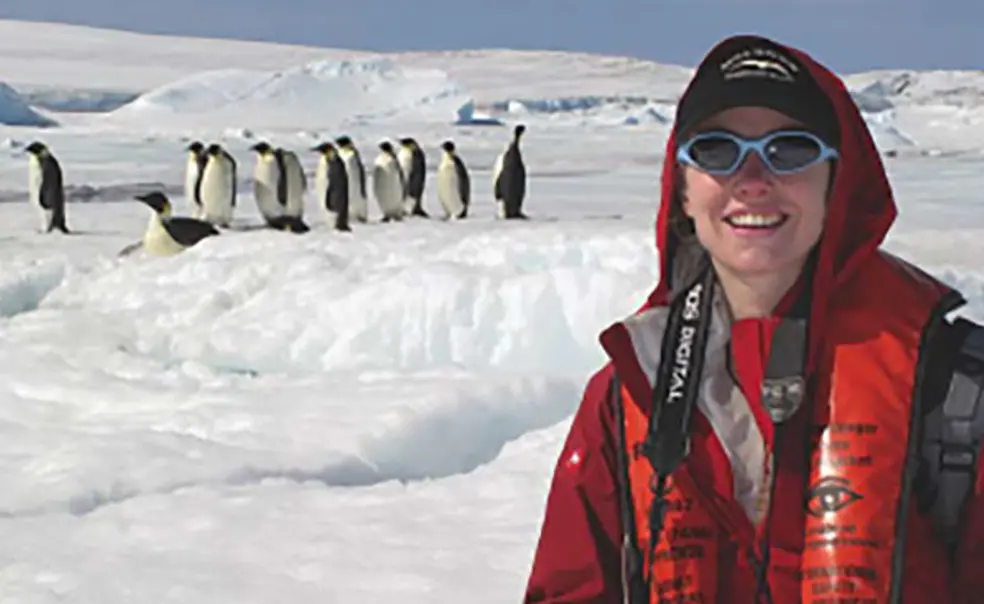COUNTING PENGUINS Heather Lynch ’00 has been tracking three penguin species on the Antarctic Peninsula — gentoo, Adélie, and chinstrap —since 2006 as a way to understand how the Southern Ocean ecosystem is changing. Co-principal investigator of the Antarctic Site Inventory (ASI), a long-term biological monitoring project, Lynch and her colleagues have found that the populations of the gentoos are increasing on the Antarctic Peninsula — an aver-age of 2.4 percent annually since 1980 — while those of the other two species are decreasing. “Even these fairly small rates of decline really do add up over decades,” she notes.
Résumé:
Assistant professor of ecology and evolution at Stony Brook University in New York. Doctorate in organismic and evolutionary biology from Harvard. Physics major at Princeton.
RESPONDING TO CLIMATE CHANGE The scientists use hand-held clickers to count breeding pairs — clicking for every nest they see. Lynch also uses high-resolution satellite imagery to survey colonies on the entire Antarctic continent — she can spot where colonies have disappeared. The likely culprits for the decreases in the chinstraps and Adélies, she says, are rising temperatures and the resulting decrease in sea ice and in krill — the main food source for penguins and other Antarctic species — which feed on algae that grows on sea ice. The gentoo penguin, which Lynch calls a “climate-change winner,” is better able to adapt than the other two species. Gentoos are “more than happy to see that ice disappear.” As sea ice diminishes, the gentoo population is able to breed farther south and will eat fish if krill are not plentiful.
OCCUPATIONAL HAZARDS You have to be hardy to conduct fieldwork on the Antarctic Peninsula. Just getting there is an adventure. During one voyage, the seas were so rough that for three days, Lynch says, “every time that we would go up a swell and down, I would float up off my bunk and then come slamming down.” There are hazards on land, too: Fur seals have growled at her, and penguins have pecked her. “I’ve gotten bruises even through my many layers of pants,” she says.












No responses yet